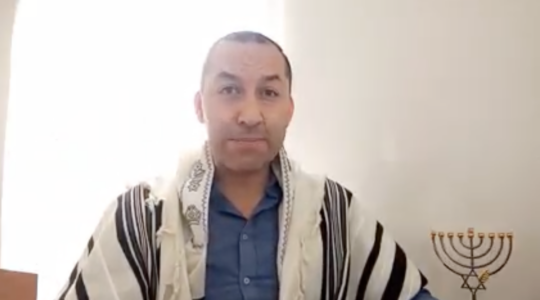ATHENS, Greece (JTA) — Aristotle University of Thessaloniki, partly built on the ruins of the city’s historic Jewish cemetery, unveiled a memorial to the graveyard that was destroyed by the Nazis.
Greek Jewish leaders hailed the erection of the monument, a series of gravestones in a bed of grass next to a broken menorah, as a late but significant move by the university and the city to recognize the past.
The monument is an important step in reversing attempts to erase the city’s Jewish past, said David Saltiel, president of the Thessaloniki Jewish Community, but he called for more work to be done to “investigate, document and present clearly to the public the instigators and executors of this destruction.”
Thessaloniki Mayor Yiannis Boutaris, who has been instrumental in reviving the city’s Jewish heritage, and other Greek political leaders attended the ceremony on Sunday. Also on hand was Irit Ben-Abba, Israel’s newly appointed ambassador to Greece.
University rector Pericles Mitkas condemned the destruction of the cemetery, but said that perhaps some consolation could be found in the fact that on “these sacred lands a university was built — that is, the daily meeting place of many cultures, promoting freedom and tolerance of all religion, race and politics and dedicated to combating prejudices. “
The Jewish community of Thessaloniki was a vital center of Sephardic Jewry for 450 years following the expulsion from Spain. Known as the “Flower of the Balkans,” it was the center of Ladino culture in the region.
In March 1943, the Nazis began sending Jews in railway convoys to the Auschwitz-Birkenau death camp. By August, 49,000 of the city’s prewar population of 55,000 Jews had been deported. Fewer than 2,000 survived.
During the Nazi occupation, the Germans destroyed the cemetery, using the grave markers for construction material.
JTA has documented Jewish history in real-time for over a century. Keep our journalism strong by joining us in supporting independent, award-winning reporting.





